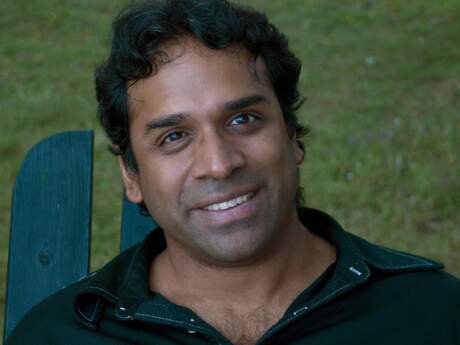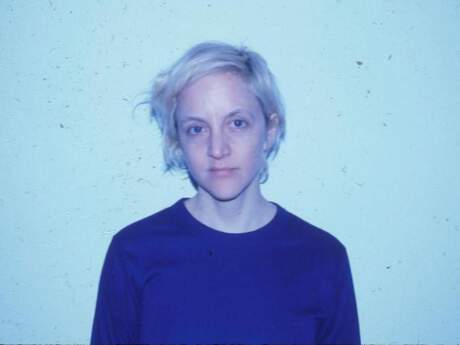Q & A: American Poetry
Q & A American Poetry: David Ray
Are there essential ways in which you consider yourself an American poet?
I am aware that I am an American poet when I realize that I depend on an American audience for a sensitive response to the subtleties if idiom and allusions, as well as the rhythms and music of American speech.
When you consider your own "tradition," do you think primarily of American poets?
Yes, although I delight in poetry from anywhere, as in the anthology of translations in the new edition of Poetry East or in the poems from several languages which I've adapted or translated.
Do you believe there is anything specifically American about past and contemporary American poetry? Is there American poetry in the sense that there is said to be American painting or American film? Do you wish to distinguish American poetry from British or other English language poetry?
By and large, Americans write with a greater freedom of form, idiom and choice of subjects. A good example of how dependent American poets are on idiom is e.e. cummings' "Portrait" (of Buffalo Bill), a poem which is lost, e.g., a British audience because it depends on the snarl of American irony ("How do you like your blue eyed boy, Mr. Death?") and a freedom with word play rarely tolerated by British poets and audiences. There has sometimes been a kind of constriction in British work, and when a poet is expansive and highly original, as Philip Larkin was, he is attacked, even after death. At times British poetry has been very meagre indeed in its offerings, a great irony considering the fantastic tradition of great work. It is as if they threw in the towel.
Which historic poets do you consider most responsible for generating distinctly American poetics?
Walt Whitman, "Emilie" Dickinson, William Carlos Williams, Edna St. Vincent Millay, Amy Lowell, e.e. cummings, Robinson Jeffers, Robert Frost, Edward Arlington Robinson, Edgar Lee Masters, David Ignatow, Kenneth Rexroth, Allen Ginsberg.
What import does regional poetry occupy in your sense of American poetry?
"Regional," like "local," is usually a putdown term. Of course, many poets are "regional" in that they express the culture of their area on the map. Southerners are the best known because they have so consciously formulated their literary rules of engagement, but New England, New York (especially NYC), the Southwest, the Northwest, etc. all have poets who offer distinctive flavors and images of their region. We don't find saguaros in the poems of Robert Frost, Phillip Booth, or Robert Francis, and we don't find a lot of sugar maple trees in the work of Richard Shelton or Robinson Jeffers.
What significance does popular culture possess in your sense of American poetry?
I find the reflection of popular culture impossible to avoid. I do not, however, consciously seek it out or make a fetish of it. I was appalled a few years ago to hear that a major publishing house had accepted a book because of its heavy use of pop culture images, brand names, etc., presumably making the book more marketable.
What about the American poets who lived primarily in Europe (Eliot, Pound, Stein)? What about the European poets who have recently lived or worked in America (Heaney, Walcott, Milosz)?
As one who lived the expatriate life for several years in several countries, I know that life abroad can provide a view of America that is likely to be far more incisive than the view from home. I recall how strange American speech seemed when I returned from overseas, and how very strange America seemed upon my return from India.
Are you interested in poetry written in America but not in English?
I am not aware of much work written in other languages, except Spanish, in the U.S. Milosz, I suppose, and the late Joseph Brodsky. I'm sure there are others who deserve translation and an audience. Hispanic poets have moved to center stage in recent years.
Are you more likely to read a contemporary non-American poet who writes in English or a contemporary non-American poet translated into English?
I read both, but good translations are rare.
Do you believe you could readily distinguish a poem by an American poet from a poem by other poets writing in English?
Unless the American poet has been very careful to avoid American idiom, free verse, geographical allusions, etc., I feel the work would be easy to identify.
What do you see as the consequences of "political correctness" for American poetry?
Because of the stress on "political correctness" considerations, one cannot help but be aware at being at a disadvantage due to such considerations. As PC becomes ever more entrenched, an unfortunate self-consciousness and caution has become apparent- - and an inferiority complex develops because one does not have the desirable profile (a kind of aesthetic anorexia). Considerations of PC have in many cases diverted us from judging poetry solely by its quality and power.
What are your predictions for American poetry in the next century?
It will be vigorous, as the great and widespread interest will continue to expand. However, the workshop influence may prove deadly. (I read one anthology, e.g., which seemed as if the entire book had been written by the same person. There was little fire or originality in the work.) The task of writing workshops should not be merely to teach a student how to write a poem on any assigned subject, but to explore thoughts and feelings in order to discover what he or she really needs to write.
Published 1999.


